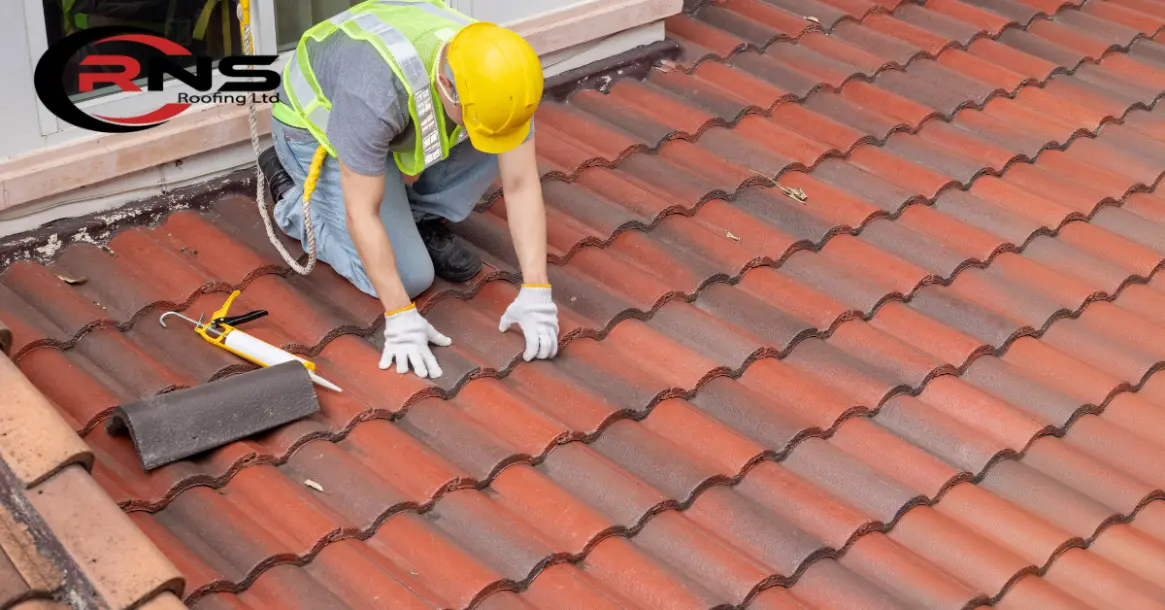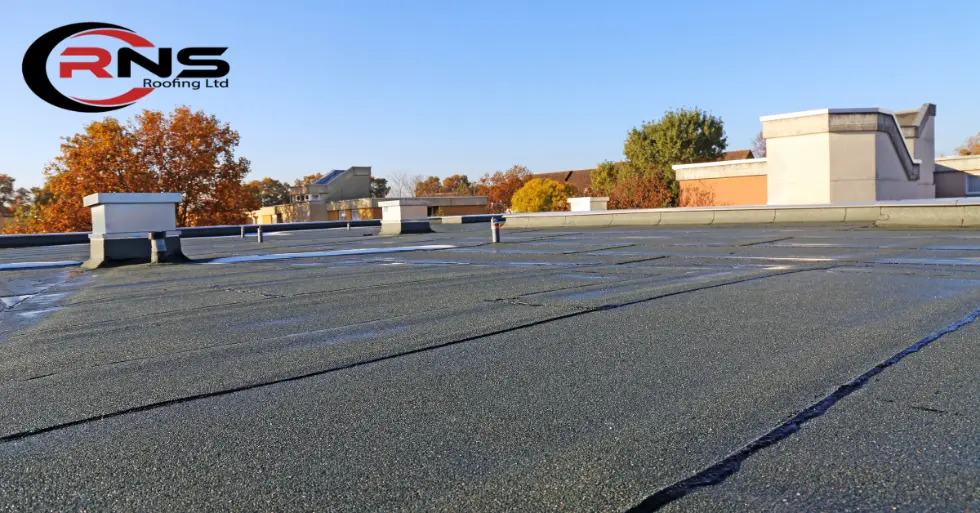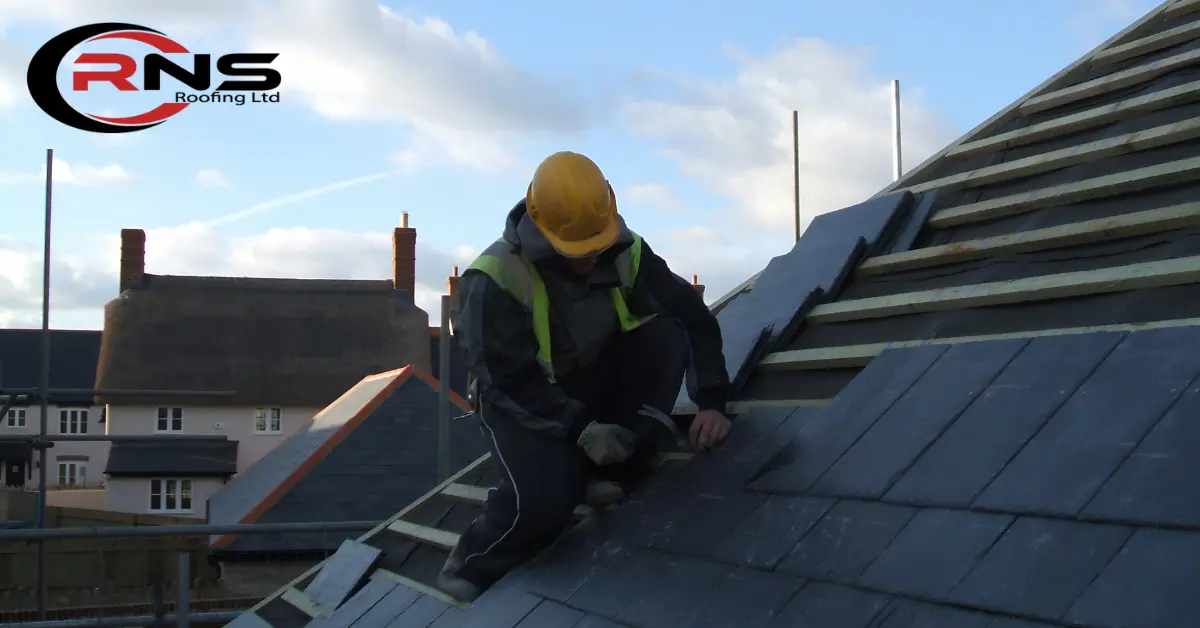If you’re planning a roof replacement, one of the first questions you’ll likely ask is: How much does a new roof cost? The answer depends on a few key things, like the size of your home, the type of roofing material you choose, and how complex your roof design is.
Roofing costs can vary, but having a clear idea of what affects the price makes planning easier. In this guide, we’ll break everything down in simple terms so you know what to expect and how to budget for a roof that keeps your home safe and protected.
If you want to Replace your Roof Instantly Please Call Us Now: 07469582272
Factors That Impact Roof Replacement Cost

Several factors influence the total cost of a roof replacement, and these can vary across the country. Here’s what you need to consider:
1. Roof Size and Pitch
The size of your roof directly impacts the cost, as more materials and labour will be required. If your home has a larger roof or a steep slope, the price will be higher. For example, to replace the roof on a 1500 sq ft house, you could be looking at anywhere from £6,000 to £15,000, depending on the material. The steeper or bigger your roof is, the more materials and time will be needed.
2. Type of Roofing Material
Your choice of roofing material plays a major role in the overall cost. Here’s a look at the most common options in the UK:
- Concrete tiles – £30–£60 per m²
- Clay tiles – £45–£70 per m²
- Natural slate – £100–£150 per m²
- Synthetic slate – £40–£60 per m²
- Metal roofing – £40–£70 per m²
Concrete tiles are one of the most budget-friendly options. They offer good durability at a lower cost. Clay tiles add a traditional look and are a bit more expensive, but they last long with little maintenance. Natural slate, often used on older or rural homes, is a long-lasting and stylish material, but it costs more because it’s made from natural stone and requires a longer installation time. Synthetic slate offers a similar look for a lower cost. Metal roofing is worth considering, even though the upfront cost of a new roof may be higher.
Choosing the right material depends on your home’s design, budget, and the length of time you plan to stay in the property.
3. Roof Complexity and Features
Roofs with additional features, such as chimneys, skylights, or dormers, require more labour and materials. That means a higher cost to replace roof.
4. Labour Rates
Labour costs for roof replacement can vary significantly based on the experience and quality of the roofing contractors in your area. Reputable companies with extensive training, proper licensing, insurance, and years of experience will charge on the higher end of the scale. Roofers usually charge £250 to £300 per day.
5. Scaffolding and Waste Removal
You’ll also need to budget for:
- Scaffolding: £700–£1,800
- Disposal of old roofing materials: £200–£500
How Much Does a New Roof Cost in the UK?

Here’s a breakdown of what you can expect to pay for various roofing materials in the UK. These figures are averages and can vary based on location and contractor rates.
Average Cost to Replace Roof by Material Type
The material used is a major factor when determining the total cost to replace your roof. Prices can vary significantly based on the material and additional considerations like the roof’s size, slope, and location.
Asphalt Shingles
Asphalt or composition shingles are a popular, affordable option. HomeAdvisor says the average cost to install asphalt shingles is between $5,000 and $10,000 for an average-sized roof. Prices range from $3 to $5 per square foot. Asphalt shingles are durable and low maintenance, but only last 15-30 years.
Metal Roofing
Metal roofs, such as steel or aluminium, are energy-efficient and long-lasting, lasting 40-70 years. However, they tend to cost between $10,000 and $20,000 or $7 to $10 per square foot, installed. Metal roofs may increase your home’s value and lower insurance costs.
Natural Slate or Concrete Tiles
Natural slate or concrete tiles are attractive but expensive options for a premium look at $10 to $30 per square foot installed, or $20,000 to $50,000 for an average roof. While highly durable, with a lifespan of 50-100 years, the heavy material requires additional structural support and installation expertise, which increases costs.
In summary, depending on the material, you can expect to pay between $5,000 to $50,000 or more for a new residential roof. Compare options based on your budget, priorities, and how long you plan to stay in the home. With regular maintenance, a high-quality roof should last decades and protect you from the elements.
Need reliable roofing services at competitive rates? Contact expert roofers in Guildford today.
Additional Costs to Consider Beyond Materials

Sometimes a roof looks okay on the outside, but once it’s removed, you might find problems underneath. These can add to your roof replacement cost:
Structural Repairs
Rotten timber or damaged joists may cost £500–£1,500 to fix.
Flashing and Guttering
- Replacing flashing: £200–£400
- New gutters or downpipes: £500–£1,000
Added Protection
Some homes need extra layers of waterproofing or breathable underlay. These upgrades can increase your cost of new roof by 10–30%.
Building Permits
In some areas, a roofing permit may be required. Expect to pay around £150–£300, depending on your local council.
Real-Life Examples
The cost of a new roof can vary significantly depending on the size and type of your home, the quality and brand of materials used, and the difficulty of the installation. To provide real-world examples, here are the prices homeowners in different areas of the country recently paid for new roofs:
- A 1,600-square-foot ranch-style house in Ohio with an asphalt shingle roof replacement cost $6,800. This included high-quality shingles with a 25-year warranty and all installation.
- For a 2,400-square-foot two-story home in California, a new concrete tile roof replacement cost $18,500. This included upgraded tiles in a terra cotta style and a more complex installation due to the home’s size and shape.
- In Florida, a 3,000-square-foot house with a metal roof replacement paid $22,000 for galvanised steel panels and all installation. The coastal location and susceptibility to hurricanes and high winds necessitated a durable, wind-resistant metal roof.
- A historic Victorian home in Massachusetts with 5,000 square feet and a slate roof replacement cost $50,000. High-quality slate shingles, custom fabrication, and challenging installation on a steeply pitched roof all contributed to the increased price.
As you can see, for a standard asphalt shingle roof on a typical-sized home, you can expect to pay between $6,000 and $12,000 for a complete replacement. Upgrading to a premium roofing material, such as metal, tile, or slate, or if you have a larger or more complex home, the price will be on the higher end of this range or possibly higher. The examples above provide real-world context so you know what to budget for a high-quality, professionally installed new roof.
Conclusion
So now you have a good sense of the costs of replacing your roof. While the national average for a new roof is around $3,500 to $15,000, the price will vary significantly based on the factors discussed. The most important steps are obtaining multiple estimates from licensed, reputable contractors, verifying their reviews and references, and ensuring they are properly insured.
A new roof is a major investment, so you must get it right the first time. Research the latest roofing materials to determine which options best fit your needs and budget. Don’t forget that a roof replacement project qualifies for energy efficiency tax credits, so keep records of your payments and materials for your taxes. With diligent planning, you can install a high-quality, long-lasting new roof at a fair price.
FAQs
What is the standard cost per square foot for a new roof?
There is no one-size-fits-all cost per square foot for roofing, as it varies based on the material, location, and additional features. It’s best to get a customised quote from a roofing contractor.
Do different types of roofs have different costs?
Yes, different roof types, such as flat roofs, pitched roofs, or mansard roofs, can have varying costs. The complexity of the design and the materials used for each type contribute to the overall cost.
Are there additional costs beyond materials and labour?
Yes, additional costs may include permits, disposal of old roofing materials, and any necessary repairs to the roof deck. These should be discussed with your roofing contractor.
How often should I replace my roof?
Most roofs last between 20 and 50 years, depending on the material. Regular inspections and maintenance will help prolong the life of your roof.

